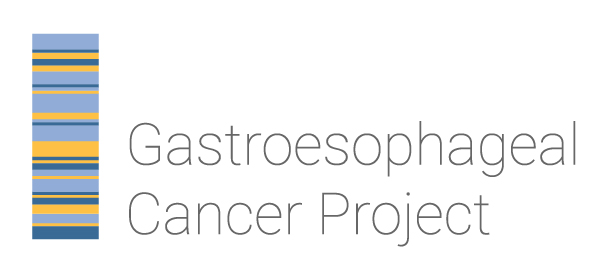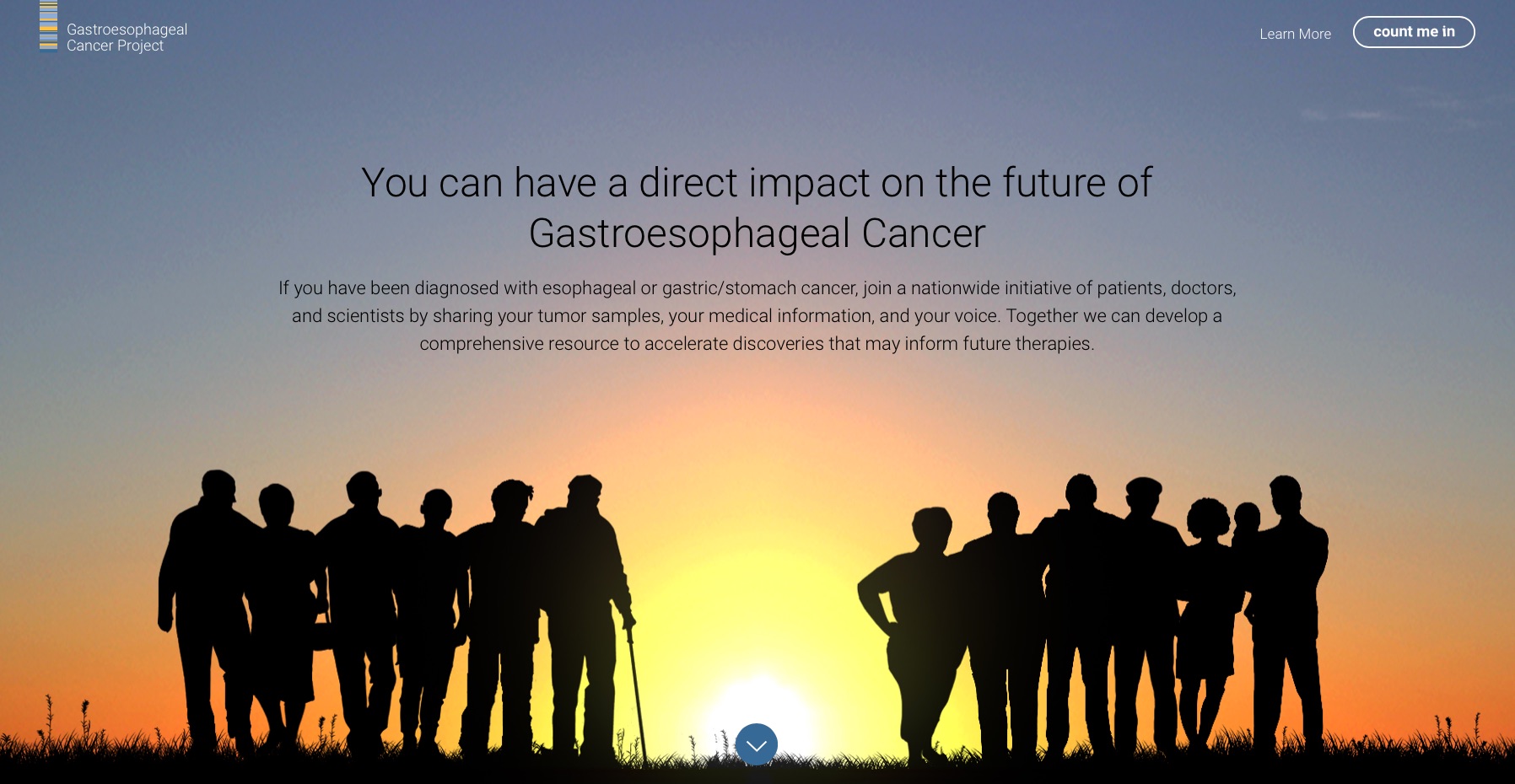We are tremendously proud to announce the launch of the Gastroesophageal Cancer Project, a new, innovative patient partnered research initiative.
The Gastroesophageal Cancer Project empowers patients with esophageal, gastric and stomach cancers to directly participate in research by crowdsourcing genomic data, which could otherwise take years and considerable expense to generate, especially in rare cancers. This data is made publicly available for free on the project website, as quickly as possible. This eliminates a major barrier to entry for researchers, providing an immediate spark across the worldwide community to accelerate research into difficult to treat gastroesophageal cancers.
In July 2017, TargetCancer Foundation formally partnered with the Broad Institute of MIT and Harvard on the development of the Gastroesophageal Cancer Project, the newest in a series of similarly designed projects in various cancer types.
As Lead Project Engagement Partner, TargetCancer Foundation created and worked closely with a Project Advisory Council comprised of current patients. This group guided every element of the design of this project from its earliest stages through beta testing, and their critical work continues well beyond the project’s launch. In addition, we coordinated a group of advocacy organization partners who will play an essential role in communicating the project to their respective communities.
After over a year of planning and development, the Gastroesophageal Cancer Project is live and enrolling new patient participants.
How does The Gastroesophageal Cancer Project work?

The Gastroesophageal Cancer Project takes an innovative approach to cancer research by directly partnering researchers with patients facing esophageal, gastric, and stomach cancers. After completing an online survey and consent, patients receive a kit by mail that allows them to provide saliva and blood samples. In addition, the project team contacts the patient’s doctor to obtain tumor tissue samples and medical records. Once all of those materials are received at the Broad Institute, comprehensive genomic analysis is performed on the samples, with the goal of making the generated data publicly available at no cost.
How can I learn more?
You can visit the website, and also follow the project on Facebook and Twitter to get real time updates on participation and data releases. If you know of someone facing esophageal, gastric or stomach cancer, please let them know about this opportunity to directly contribute to research.


